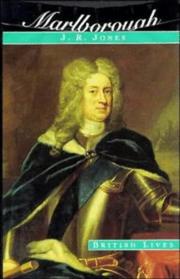| Listing 1 - 4 of 4 |
Sort by
|
Digital
Abstract | Keywords | Export | Availability | Bookmark
 Loading...
Loading...Choose an application
- Reference Manager
- EndNote
- RefWorks (Direct export to RefWorks)
Book
ISBN: 0691062005 9781400871865 1400871867 9780691062006 9780691620190 0691620199 069164702X 132288563X Year: 1971 Publisher: Princeton: Princeton university press,
Abstract | Keywords | Export | Availability | Bookmark
 Loading...
Loading...Choose an application
- Reference Manager
- EndNote
- RefWorks (Direct export to RefWorks)
In narrative and some 120 pictures, Don M. Wolfe traces Milton's life in the context of the public events and common scenes of his time. His illustrations and vignettes, supported by passages from the history of the period as well as the poet's own writings, bring to life the people, politics, and society of seventeenth-century England: maidens carrying fresh cream and cheese on their heads, men with hats and caps to sell; the Long Parliament of 1640; Charles I's summary trial and execution; Cromwell's Protectorate; the London Plague of 1665 and the Great Fire of 1666; the publication of Paradise Lost.The principal figure is, of course, John Milton, seen first as a boy of ten, sober and confident, even "then a poet." He is seen also as a traveler to the continent in 1638-1639, when he filled his mind with scenes and places that he would use in Paradise Lost: the sulphuric Phlegraean Fields outside Naples; Galileo, the "Tuscan artist" with optic glass. Milton the revolutionary is described, the libertarian pamphleteer whose passionate cry that every man had the right "to know, to utter, to argue freely" was realized around the campfires of the New Model Army. Throughout, Milton is depicted also as the poet aspiring to "leave something so written to aftertimes, as they should not willingly let it die"-his creative genius coming forth at last in Paradise Lost and his final major work, Samson Agonistes.Originally published in 1971.The Princeton Legacy Library uses the latest print-on-demand technology to again make available previously out-of-print books from the distinguished backlist of Princeton University Press. These editions preserve the original texts of these important books while presenting them in durable paperback and hardcover editions. The goal of the Princeton Legacy Library is to vastly increase access to the rich scholarly heritage found in the thousands of books published by Princeton University Press since its founding in 1905.
Milton, John --- Poets, English --- Homes and haunts --- Milton, John, --- Great Britain --- England --- History --- Intellectual life --- English poets --- Poets, English - Homes and haunts - England --- Milton, John, - 1608-1674 - Homes and haunts - England --- Great Britain - History - Stuarts, 1603-1714 - Biography --- England - Intellectual life - 17th century --- Milton, John, - 1608-1674

ISBN: 0521375711 0521375932 051156063X 0511876408 9780521375931 9780521375719 9780511560637 Year: 2008 Publisher: Cambridge: Cambridge university press,
Abstract | Keywords | Export | Availability | Bookmark
 Loading...
Loading...Choose an application
- Reference Manager
- EndNote
- RefWorks (Direct export to RefWorks)
John Churchill, first duke of Marlborough, was one of the two greatest military commanders in British history and the first subject to achieve and exercise a dominating influence in European affairs. With Wellington and Nelson he is the nearest that Britain has had to a national hero, yet today his reputation has faded. Few, apart from specialists in military history, have any appreciation of the extent of his achievements. This new study sets Marlborough's career in its contexts: the royal Court of the last Stuart monarchs, the desperate struggle against French attempts to establish hegemony in western Europe and the bitter political strife in Britain between the Whig and the Tory parties. It examines the opportunistic ways in which John Churchill rose from obscurity and poverty to wealth and greatness, his decisive role in the Revolution of 1688 and the circumstances and reasons for his dramatic fall.
Statesmen --- Generals --- Biography --- Marlborough, John Churchill, --- Great Britain --- History --- Court and courtiers --- Arts and Humanities --- Statesmen - Great Britain - Biography --- Generals - Great Britain - Biography --- Marlborough, John Churchill, - Duke of, - 1650-1722 --- Great Britain - History - Stuarts, 1603-1714 - Biography --- Great Britain - Court and courtiers - Biography --- Churchill, John, --- Churchill, --- Malborough, --- Marlborough,
Book
ISBN: 0198117205 Year: 1990 Publisher: Oxford Clarendon Press
Abstract | Keywords | Export | Availability | Bookmark
 Loading...
Loading...Choose an application
- Reference Manager
- EndNote
- RefWorks (Direct export to RefWorks)
miniatures [paintings] --- Iconography --- portraits --- biographies [documents] --- Dyck, van, Anthony --- Stuart [Dynasty] --- England --- Biografie als literair genre --- Biografie--Geschiedenis en kritiek --- Biografie--Techniek --- Biographie (Genre littéraire) --- Biographie--Histoire et critique --- Biographie--Technique --- Biography [Writing of ] --- Biography as a literary form --- Biography--History and criticism --- Biography--Technique --- Peinture de portraits britannique --- Portrait painting [ British ] --- Portretschilderkunst [ Britse ] --- Art and literature --- -Biography as a literary form --- Portrait painting, British --- British portrait painting --- Biography --- Authorship --- Prose literature --- Literature and art --- Literature and painting --- Literature and sculpture --- Painting and literature --- Sculpture and literature --- Aesthetics --- Literature --- History --- History and criticism --- Technique --- Great Britain --- -Biography. --- -Biography --- -History and criticism. --- History and criticism. --- Stuarts, 1603-1714 --- 1714-1837 --- Great Britain - History - Stuarts, 1603-1714 - Biography - History and criticism. --- Great Britain - History - 1714-1837 - Biography - History and criticism. --- Art and literature - Great Britain - History. --- Biography (as a literary form) --- Portrait painting, British. --- biographies [literary works]
| Listing 1 - 4 of 4 |
Sort by
|

 Search
Search Feedback
Feedback About UniCat
About UniCat  Help
Help News
News